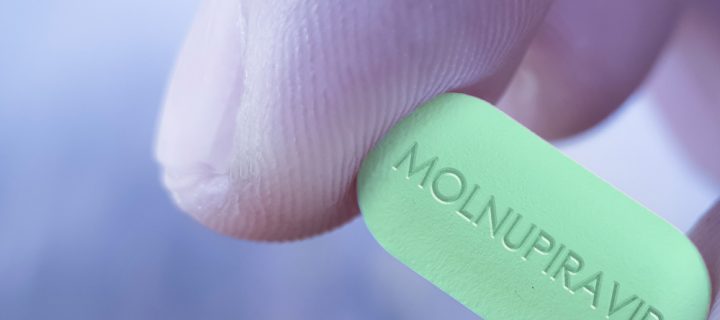It goes a long way to help make patients less infectious.
With COVID-19 vaccines on their way but many months still ahead of us before the benefits of mass vaccination can take hold, anything that helps slow the pandemic is certainly most welcome. Masks and social distancing can go a long way, and doctors now have another tool in their pocket. This one is in the form of a new antiviral drug.
The medication is called MK-4482/EIDD-2801, or ‘Molnupiravir’. Neither of these labels are easy to remember. This drug could go on to be a significant player in the pandemic, however.
The Power of the Treatment
According to researchers from Georgia State University, Molnupiravir does three amazing things. This treatment slows the progression of COVID-19 in people who have it, making them far less likely to develop a severe case of the disease. Secondly, it shortens the time a COVID-19 patient is infectious.
Lastly, because of this second benefit, Molnupiravir in turn also shortens the length of time patients need to self-isolate. People who take it can get back to their lives outside their home sooner.
Dr. Richard Plemper, a professor at Georgia State who led the the study at Georgia State said he feels the new drug is a powerful candidate for pharmacologic control of COVID-19. In short, it’s just the sort of drug we need right now.
Tested in Ferrets
How do we know this treatment works so well? Molnupiravir has yet to be studied fully in humans, but it has done its job well in animals. The drug was given to ferrets in clinical trials. The animals were first infected with COVID-19. They were then given the antiviral once they began to shed the virus from their nose.
Why ferrets? Ferrets were chosen by researchers as a transmission model because they are somewhat similar to young adults when it comes to COVID-19. Ferrets spread the illness easily and readily, but do not themselves fall very sick. They don’t develop severe COVID-19.
To test the effectiveness of the drug, the infected ferrets that had received the antiviral medication were housed with untreated ferrets. Impressively, none of these non-treated ferrets fell sick. All of the contact ferrets that were caged with ferrets infected with COVID-19 that hadn’t received the antiviral drug did fall sick, however.
It’s all very good news. Researchers say that if these results translate to humans, COVID-19 patients who receive Molnupiravir could potentially become non-infectious within just 24 hours of receiving the drug. Just one day!
It could be no minor miracle if this does work. Molnupiravir can be taken by mouth, and could be easy to prescribe.
Stopping the Spread
COVID-19 infections reach across all age groups, but patients over the age of 45 account for the greatest amounts of COVID-19 deaths in the US. This being said, depending on the moment you take your statistics from, at times younger groups have had higher case counts..
At the time of this writing, Molnupiravir is in advanced phase II/III clinical trials to study its effectiveness and safety against COVID-19 infection.
Officials are estimating that every person in the US who wants to get a COVID-19 vaccine will be able to receive one by June 2021. Until then, we have over six months to continue fighting off the virus.
photo credits: Sonis Photography/Shutterstock.com












